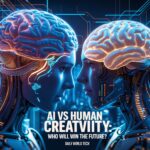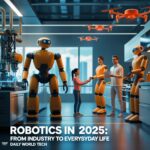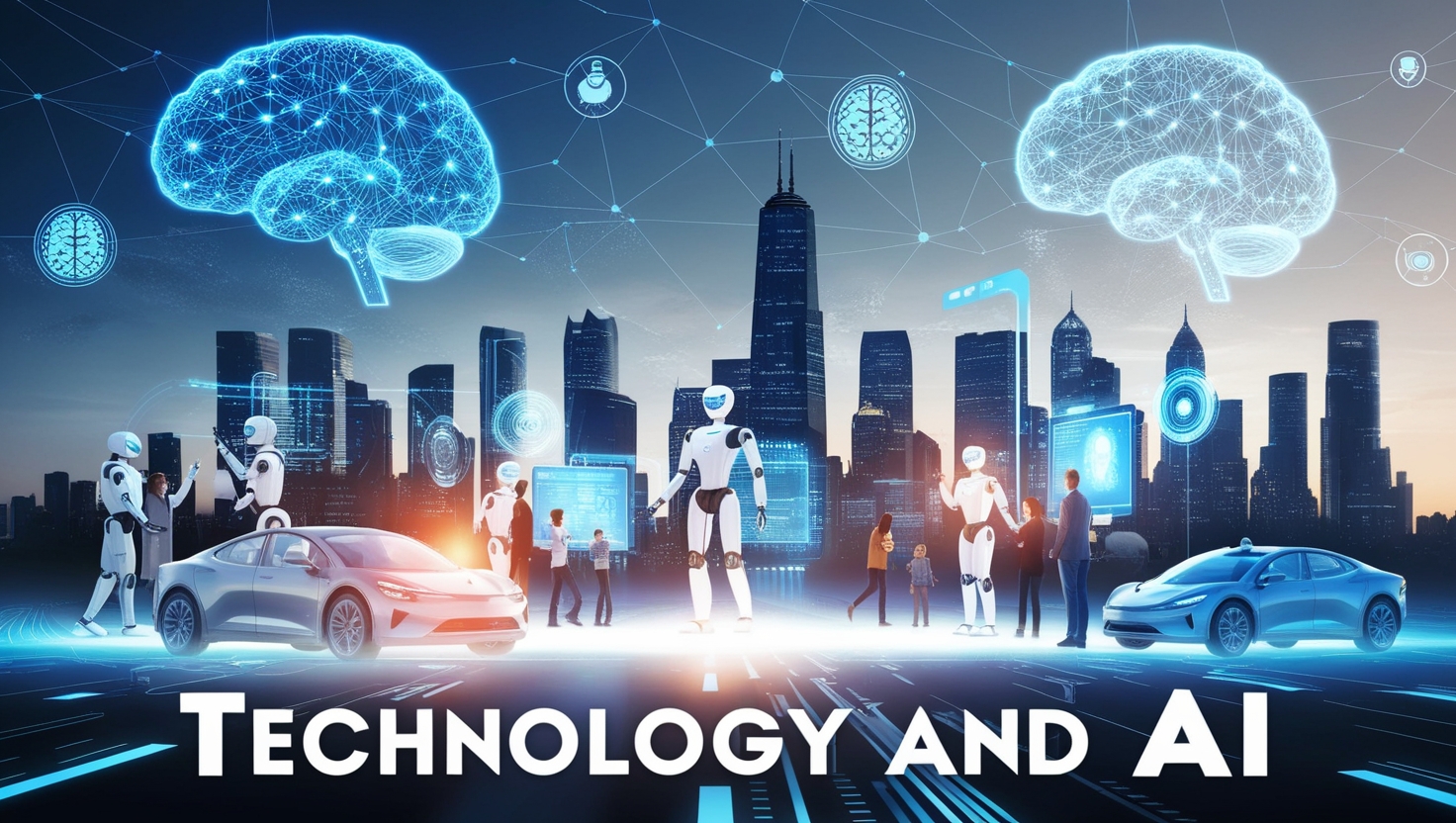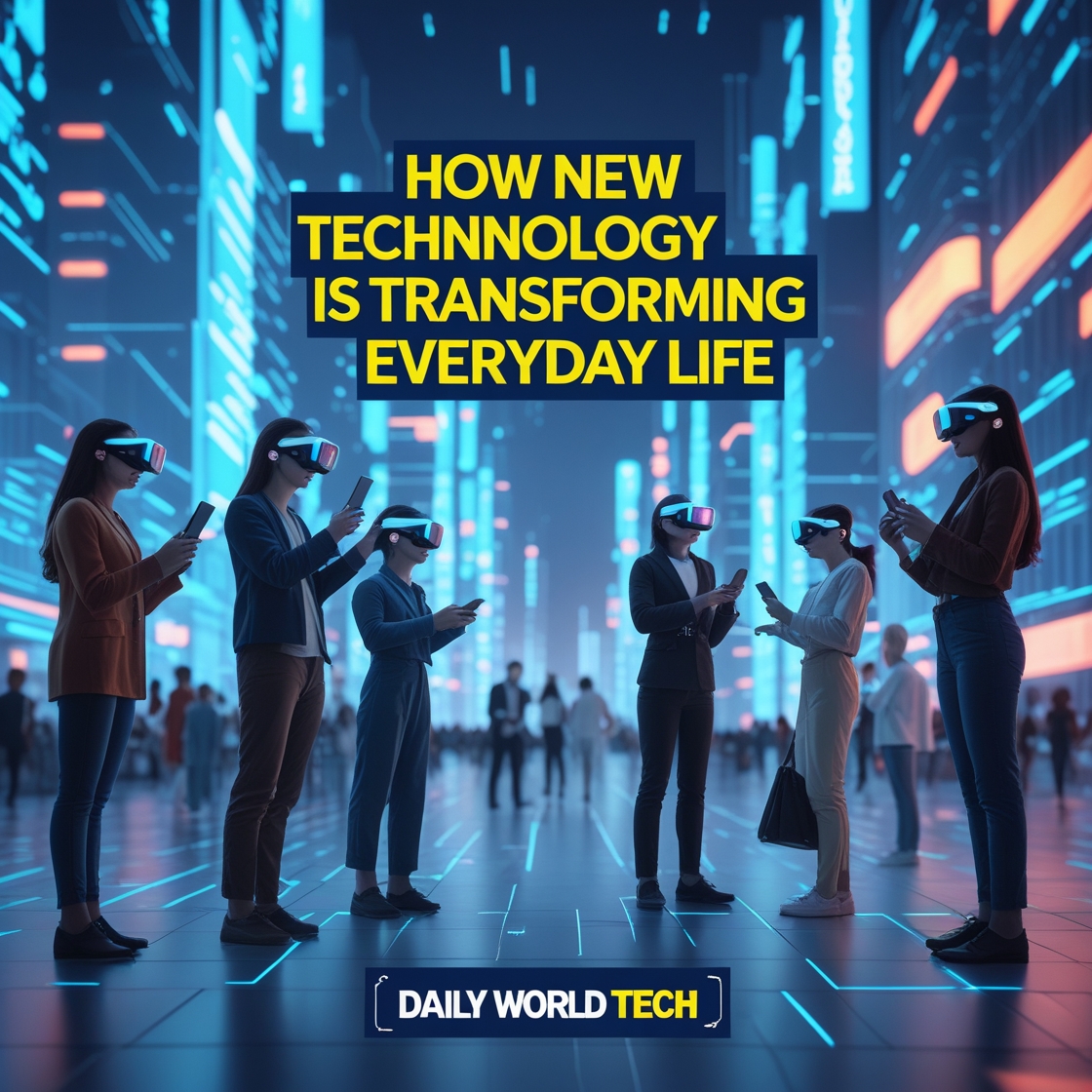In recent decades, technology has brought major changes to most parts of human life. Everything from talking with people to working, getting around, and enjoying leisure time now involves technology. Among all technology, AI is considered to be a revolutionary force likely to reshape industries, economies, and even our way of thinking.
The explores looks at in depth how Technology and AI affect our lives, what we gain thanks to them, and what is ahead.
What is Artificial Intelligence?
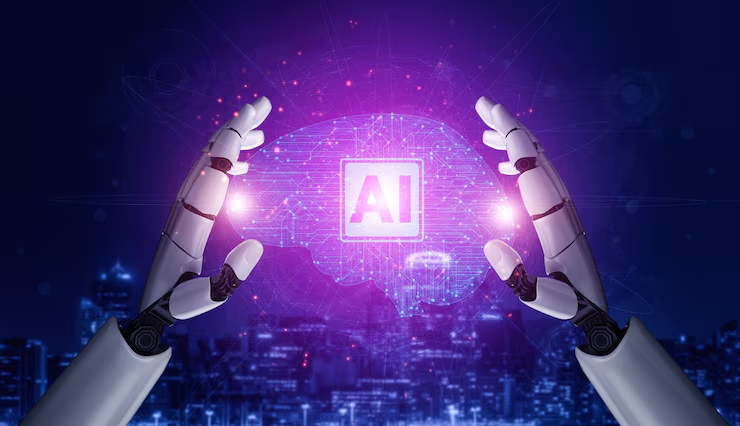
Artificial Intelligence involves creating machines that are able to think and act in the same ways that people do. The area covers many different technologies, for example:
- Machine Learning (ML)
- Natural Language Processing (NLP)
- Computer Vision
- Robotics
- Neural Networks and Deep Learning
AI is not only a technology, but it involves the study of how machines can listen to speech, identify pictures, analyze information, and make decisions on their own.
Everyday Technologies are Being Enhanced with AI
A combination of AI with other technologies has made possible several different applications. Below are a few examples of how AI is part of our everyday routine:
1. Smart Assistants
Siri, Alexa, and Google Assistant all use AI to understand what we say, answer our questions, remind us of things, and do other things.
2. Social Media Algorithms
Our interests and behavior while using the internet are used by AI to choose what our feeds feature on Facebook, Instagram, and YouTube.
3. Healthcare Diagnostics
Using AI, doctors are able to find diseases earlier and with greater accuracy. As an illustration, AI can review X-ray and MRI images as well as pathology reports much faster than those done by human experts.
4. E-commerce Recommendations
AI is included in these platforms to cross-check your history and make suitable recommendations for you.
5. Autonomous Vehicles
With the help of AI, self-driving cars avoid collisions and take immediate actions to stay safe on the road.
Benefits of AI and Technology

Developments in technology and AI lead to many useful benefits.
1. Increased Efficiency
It takes machines a shorter time and is more precise than a human to process large amounts of data.
2. Automation of Repetitive Tasks
It automates tasks that used to take up a lot of time, so people can concentrate on more creative and important work.
3. Personalized Experiences
Advertising, e-learning, and customer support can be tailored for users thanks to AI’s use of data.
4. Improved Healthcare
AI is transforming research, the approach to drug discovery, remote monitoring, and the way treatment plans are created for individuals.
5. Economic Growth
AI could help form new sectors, new jobs, and ways of driving economic growth that we never imagined a few decades back.
Challenges and Ethical Concerns
While the benefits of AI are huge, its fast development is also causing some worries.
1. Job Displacement
Automation is taking over a lot of traditional jobs, mostly in factories, customer service, and the transportation field.
2. Privacy Issues
AI systems use huge amounts of data, usually including personal information, which makes many people worry that those data might be used the wrong way.
3. Bias and Discrimination
AI algorithms can pick up and even increase bias in the world if they aren’t trained and watched carefully.
4. Security Threats
AI can be used to harm computers, make fake videos or photos that look real, and watch what we all do, which can be really dangerous both for people and countries.
5. Lack of Regulation
Because rules for AI are not the same everywhere, there are chances for them to be exploited.
The Future of AI: What Lies Ahead?
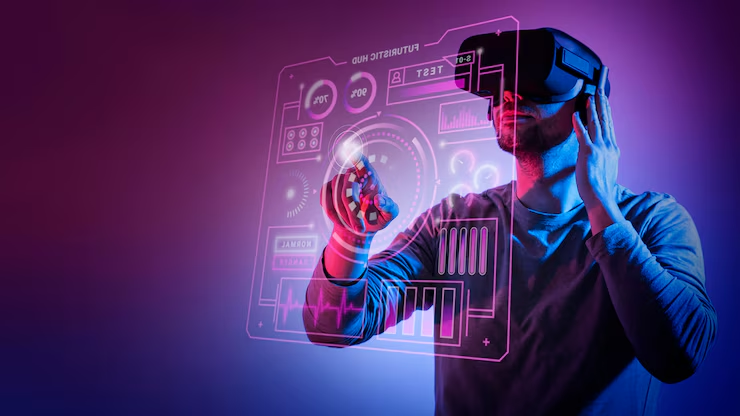
Many people are currently trying to figure out what impact AI will have on our lives as time goes on. Here are a few predictions:
- Human-AI Collaboration: AI will be more and more involved in working with people, helping them work better in areas like education, law, finance, and healthcare.
- Artificial General Intelligence (AGI): Scientists are trying to create machines that can think as much as people, but it could take many more years before we actually reach this point.
- Ethical AI Development: There will be a focus on making AI systems clear, honest, and fair to people who use them.
- AI in Creativity: AI will be used more in making music, creating art, writing stories, and other creative jobs.
- Global AI Policies: International efforts may come up to make sure that AI is used responsibly and in the right way everywhere.
Conclusion
Not only do technology and AI help us, but they are changing the structure of our society. AI has the ability to both change industries and boost human abilities in new ways. Yet, along with having great powers comes a heavy sense of responsibility. Moving forward in our digital future, it’s crucial that everyone in the AI field joins forces to benefit from its opportunities and solve its problems.
Instead of entering the future, we build it together. Thanks to AI, we now can work towards making the world smarter, more connected, and more fair.





